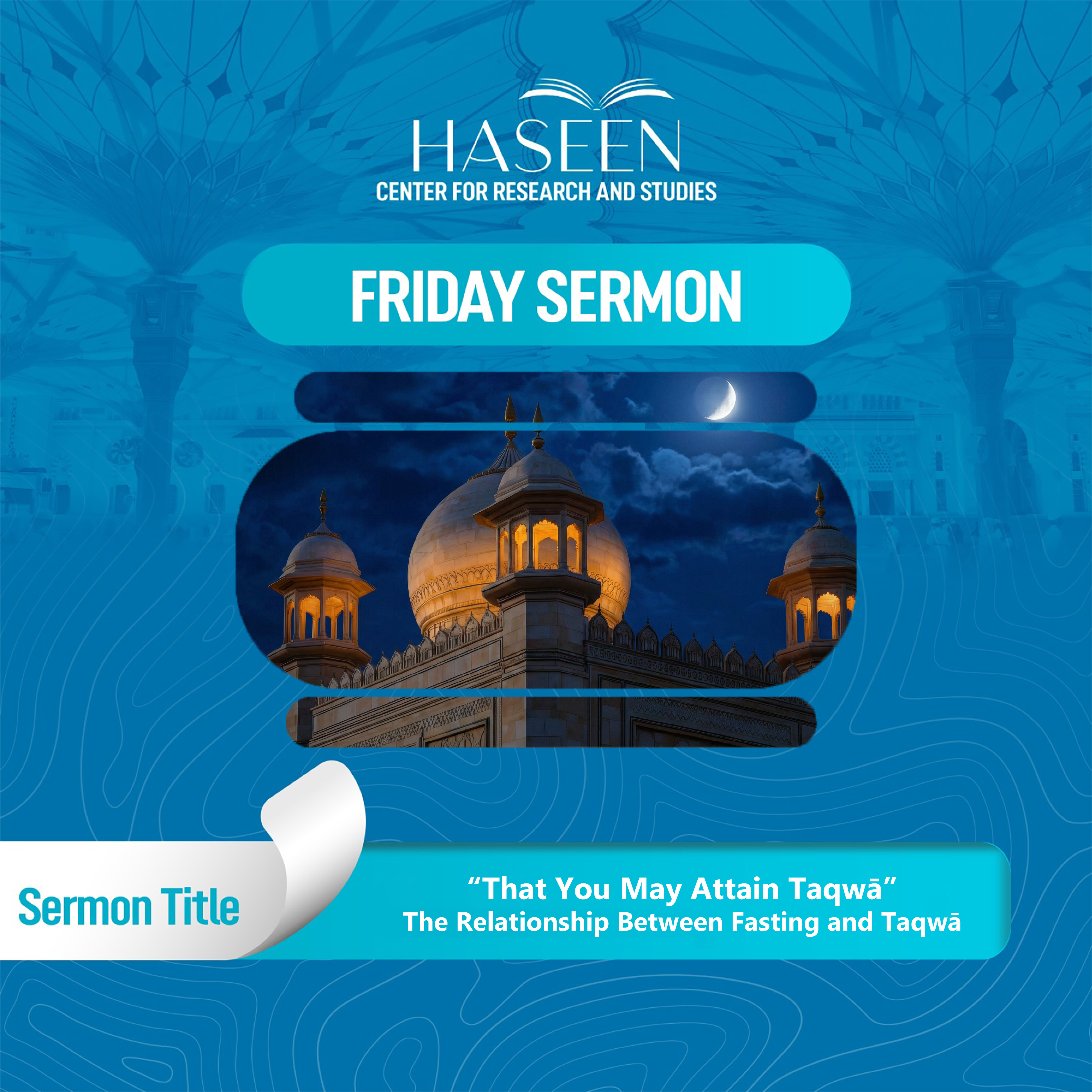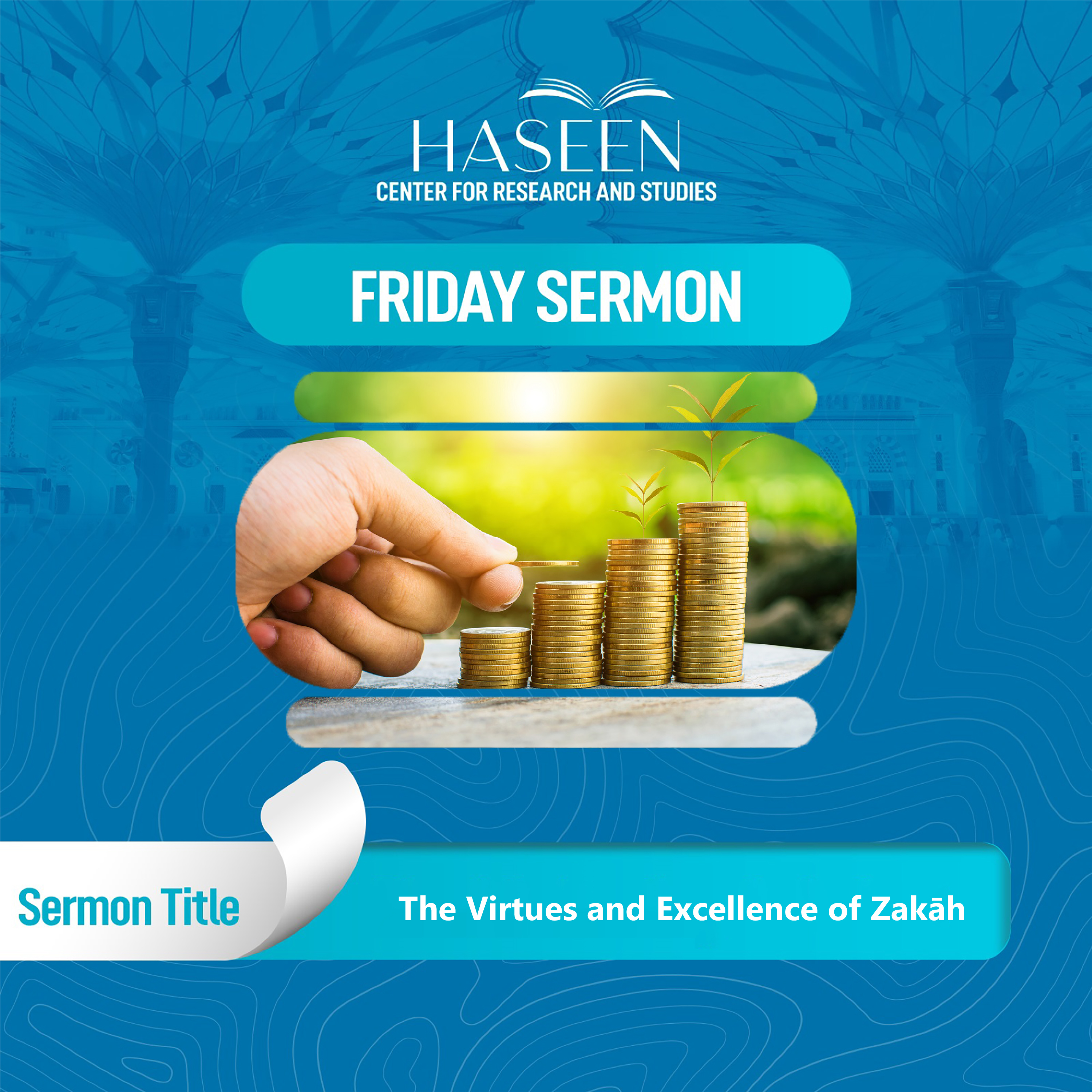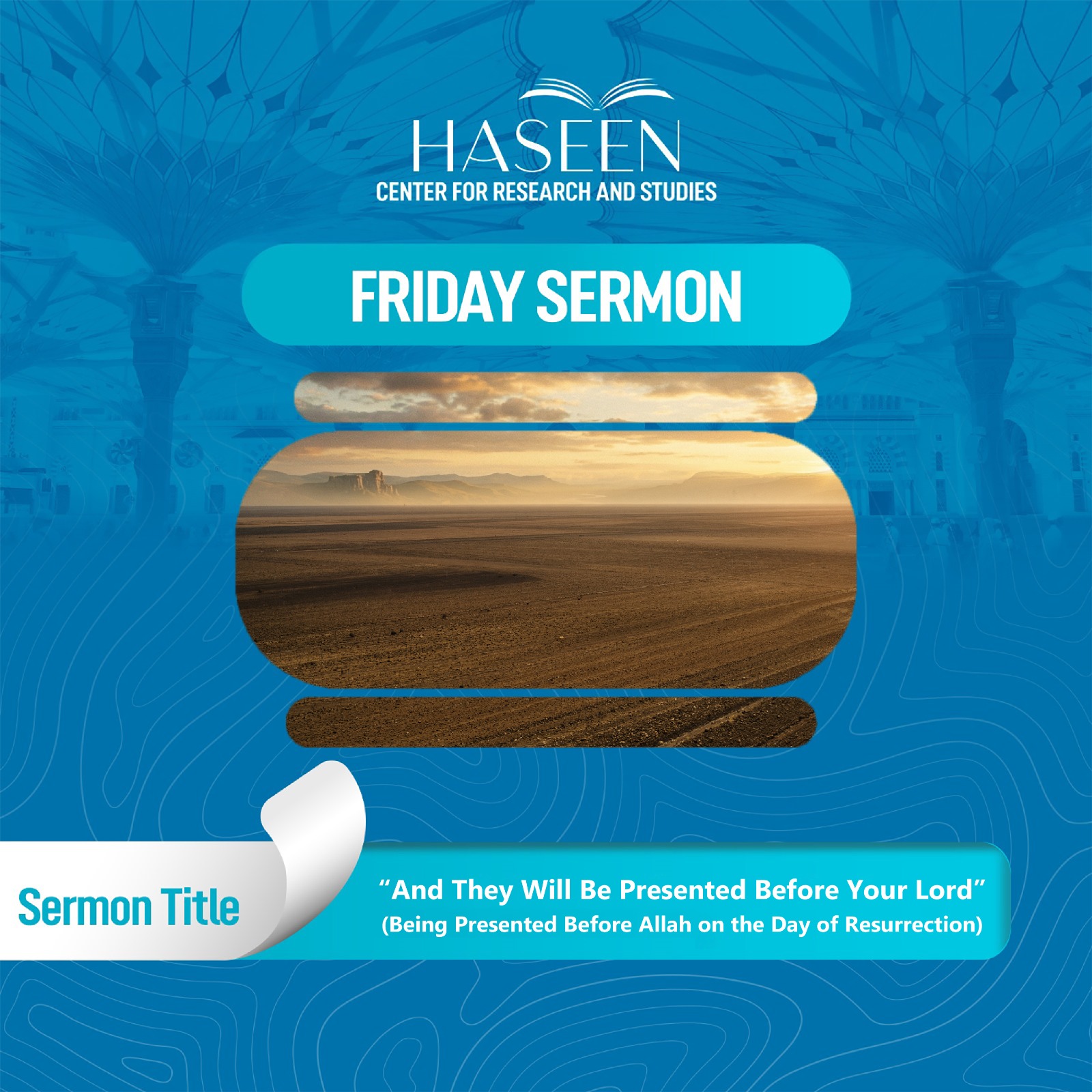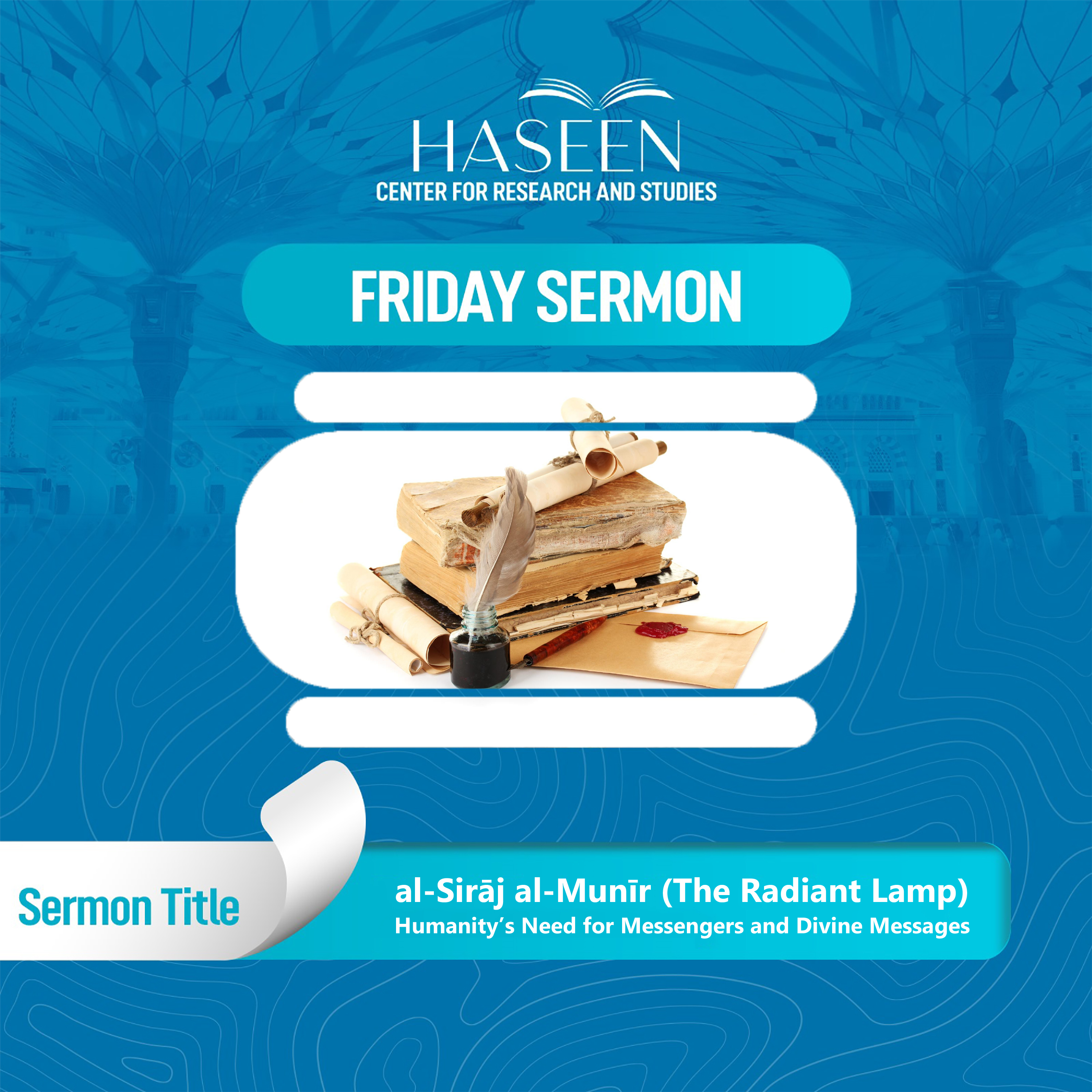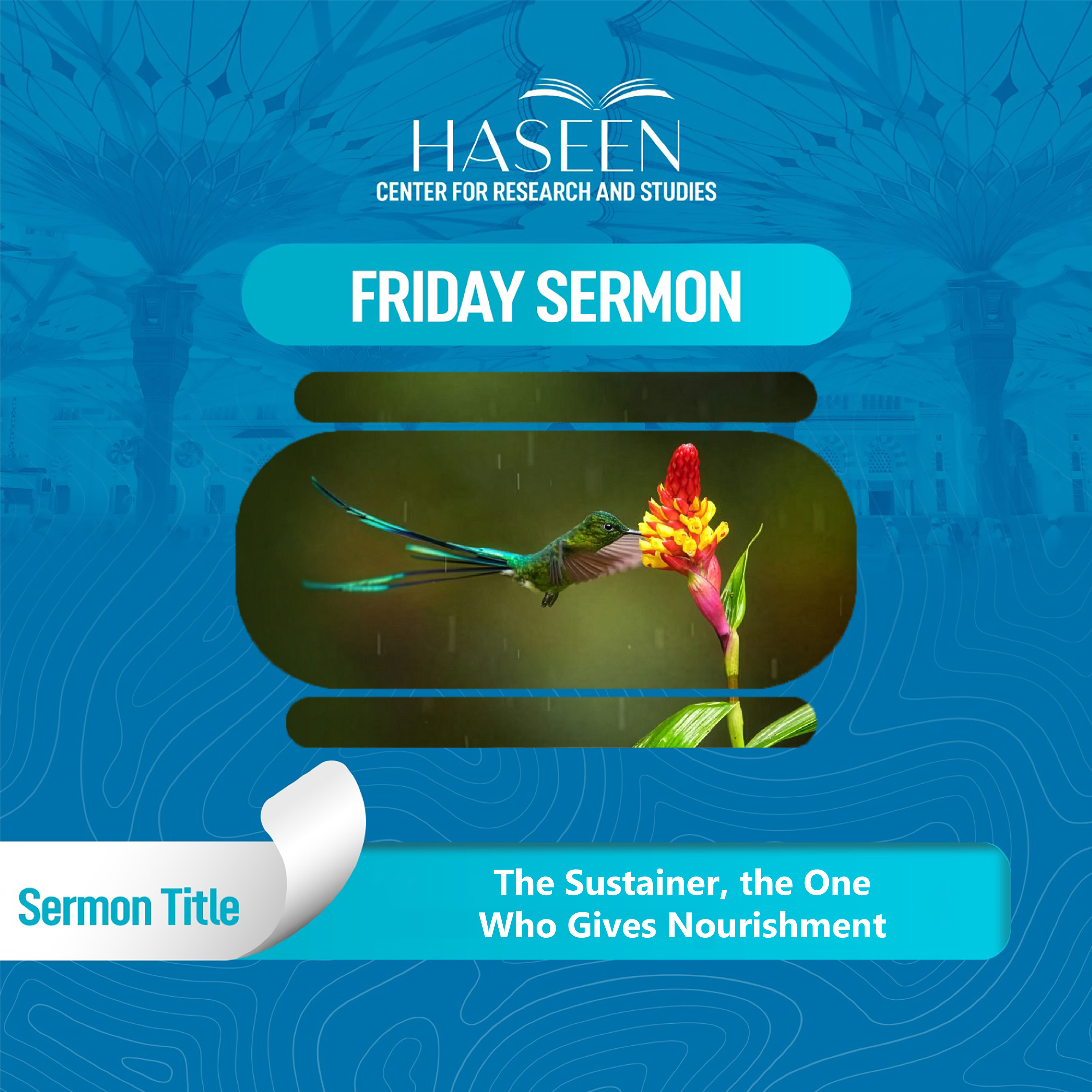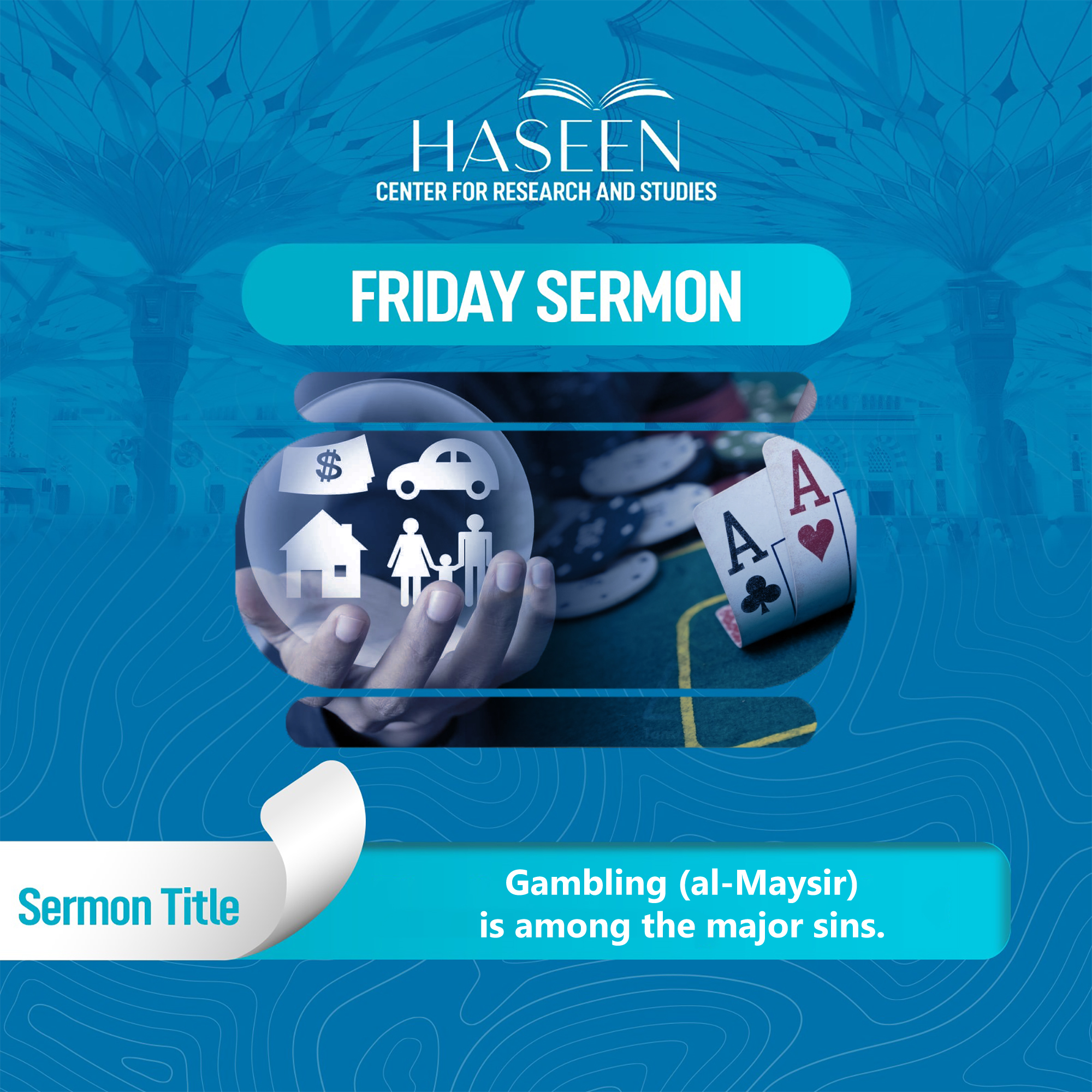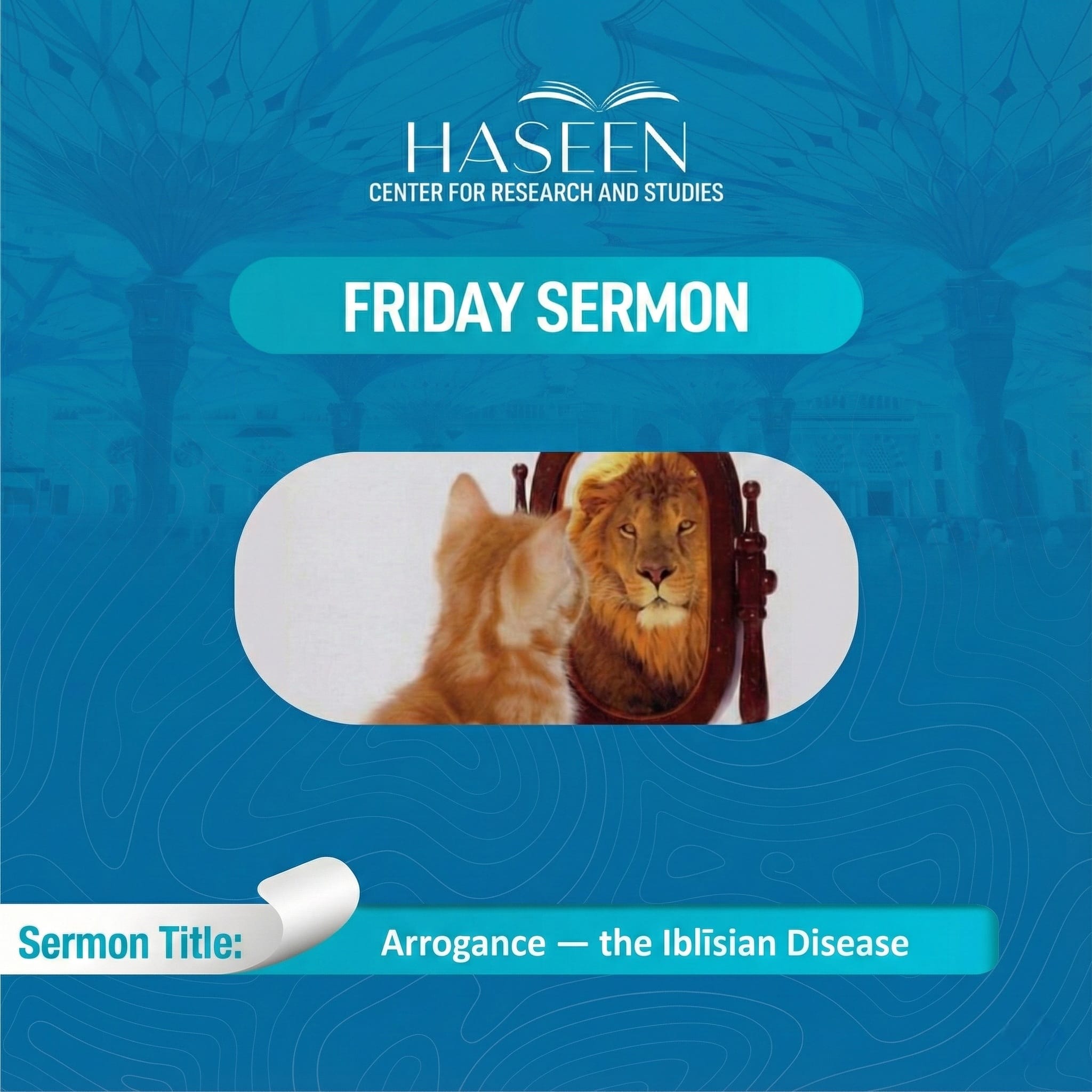Sermon Title: The First Ten Days of Dhul-Hijjah: Virtues and Sharia Rulings
Themes of the sermon:
Necessity of making use of one's life in performing good deeds.
Allah’s wisdom of blessing certain times more than others.
Virtues of the first ten days of Dhul-Hijjah.
Most important deeds to be performed during these ten days.
All praise is due to Allah, Who gives preference for certain days and months as He wishes, blessing them with virtues as He wills. This is one of the manifestations of His mercy, to be a reminder for those who contemplate. I bear witness that there is no deity worthy of worship except Allah, the Almighty, the All-Forgiving, alone without any partner. And I bear witness that Muhammad is His servant and Messenger, the Chosen and the Beloved Prophet. May Allah exalt and send peace to him, his family, and his companions all the time as long as the night and day follow each other.
To proceed,
O Servants of Allah! Fear Allah, as He should be feared, and be mindful of Him in private and public.
يَـٰٓأَيُّهَا ٱلَّذِينَ ءَامَنُوا۟ ٱتَّقُوا۟ ٱللَّهَ وَكُونُوا۟ مَعَ ٱلصَّـٰدِقِينَ
“O you who have believed, fear Allah and be with those who are true.” (9:119)
Dear Muslim Brother! Indeed, time serves as a repository for our acts of obedience to Allah, and a path to draw closer to Him.
وَهُوَ ٱلَّذِي جَعَلَ ٱلَّيۡلَ وَٱلنَّهَارَ خِلۡفَةٗ لِّمَنۡ أَرَادَ أَن يَذَّكَّرَ أَوۡ أَرَادَ شُكُورٗا
“And it is He who has made the night and the day in succession for whoever desires to remember or desires gratitude.” (25: 62)
It is a great favor from Allah to guide His believing servants to make use of good opportunities in life, because life goes by and comes to an end, and a person has nothing to retain except the righteous deeds he has kept and accumulated. Allah says:
وَسَارِعُوٓاْ إِلَىٰ مَغۡفِرَةٖ مِّن رَّبِّكُمۡ وَجَنَّةٍ عَرۡضُهَا ٱلسَّمَٰوَٰتُ وَالأرضُ
“And hasten to forgiveness from your Lord and a garden as wide as the heavens and earth, prepared for the righteous.” (3: 133)
The fortunate one is he who makes use of the times, accumulates the acts of obedience during seasons of blessings, and exploits the waves of mercy. The night and the day do not await; they alternate without any pause. Life is a trust, and the servant will be questioned about it on the Day of Resurrection, as the Prophet (ﷺ) said: “The feet of a servant will not move on the Day of Resurrection until he is asked about his life – how he spent it, his knowledge – how he acted upon it, his wealth – how he earned it and how he spent it, and his body – how he used it.” (Reported by al-Tirmidhi)
The Prophet (ﷺ) also advised a man saying: “Take advantage of five things before five others: your youth before your old age, your health before your illness, your wealth before your poverty, your free time before your preoccupation, and your life before your death.” (Reported by al-Nasa'i)
O Servants of Allah!
Indeed, it is a part of Allah’s wisdom that He prefers certain times over others. Thus, He blesses us with seasons for worship, in which reward is multiplied. Allah commands various forms of righteous deeds, so as to enable the believers to be raised in status, and give an opportunity for those lagging to make up for their lapses.
Among the preferred and blessed days that Allah raises their status are the first ten days of the month of Dhul-Hijjah. These are blessed and great days, incomparable by any other days, and whose deeds give a matchless reward. Our Lord, the Almighty, swears by these days in the Qur'an, saying:
وَٱلْفَجْر * وَلَيَالٍ عَشْرٍۢ
“By the dawn, and the ten nights.” (89: 1-2)
It is narrated on the authority of Jabir (may Allah be pleased with him) that “these ten nights refer to the ten days of Dhul-Hijjah.”
These are the “known” days that Allah mentions in His saying:
لِّيَشۡهَدُواْ مَنَٰفِعَ لَهُمۡ وَيَذۡكُرُواْ ٱسۡمَ ٱللَّهِ فِيٓ أَيَّامٖ مَّعۡلُومَٰتٍ عَلَىٰ مَا رَزَقَهُم مِّنۢ بَهِيمَةِ ٱلۡأَنۡعَٰمِ
“That they may witness benefits for themselves and mention the name of Allah on known days over what He has provided for them of [sacrificial] animals.” (22: 28)
Ibn Abbas said: “The ‘known days’ are the ten days of Dhul-Hijjah.”
Allah has marked these days uniquely with their great rewards, promising many blessings for the religious deeds performed during which. Every righteous deed performed on these days is more beloved to Allah than those performed on other days. The Prophet (ﷺ) said: “There are no days during which righteous deeds are more beloved to Allah than these ten days.” They (the companions) asked, “O Messenger of Allah, not even Jihad in the cause of Allah?” The Messenger of Allah (ﷺ) replied, “Not even Jihad in the cause of Allah, except for a man who goes out with his life and his wealth and does not return with anything of that.” (Reported by al-Tirmidhi)
According to another narration, the Prophet (ﷺ) said: “There is no deed purer in the sight of Allah, the Almighty and Majestic, nor greater in reward, than a good deed done during the ten days of al-Adha (Sacrifice).” (Reported by al-Darimi)
These virtuous days are given such great blessings because they witness all the basic pillars of worship in Islam: prayer, fasting, charity, pilgrimage, slaughter and Dhikr. All these acts cannot come together on any other days. Moreover, these days are a time for unique events that occurs on no other days.
The eighth of these days is the Day of Tarwiyah, marking the beginning of the Hajj rituals. Pilgrims start the state of Ihram and recite the Talbiyah on this day, then proceed to Mina and Arafat. The ninth day is the great day of Arafah, about which the Prophet (ﷺ) said: “There is no day on which Allah frees more slaves from the Fire than the day of Arafah. He draws near, then boasts of them (i.e. His servants) to the angels, saying: ‘What do these want?’” (Reported by Muslim) The Prophet (ﷺ) also said: “The best supplication is the supplication on the day of Arafah, and the best of what I and the Prophets before me have said is: ‘There is no deity worthy of worship but Allah, alone, without a partner. To Him belongs all sovereignty and praise, and He is over all things omnipotent.’” (Reported by al-Tirmidhi). Fasting on the day of Arafah expiates sins for two years: the previous year and the coming one.
The tenth of these ten days is the Day of Sacrifice. Regarding this day, the Prophet (ﷺ) said: “The greatest day in the sight of Allah, the Exalted and Majestic, is the Day of Sacrifice.” (Reported by Abu Dawud) As we see, these days are blessed and full of goodness. We must turn to Allah, repent to Him, and strive through acts of worship during these blessed and virtuous times, following the command of Allah the Almighty,
وَتَزَوَّدُواْ فَإِنَّ خَيۡرَ ٱلزَّادِ ٱلتَّقۡوَىٰۖ وَٱتَّقُونِ يَـٰٓأُوْلِي ٱلۡأَلۡبَٰبِۢ
“And take provisions, but indeed, the best provision is fear of Allah. And fear Me, O you of understanding.” (2: 197)
May Allah make His Book, the Glorious Qur'an, a blessing for you and me, and may He make us avail of its verses and reminders contained in it. With that said, I ask Allah’s forgiveness for me, for you and for all the Muslims. So, you also should ask for Allah’s forgiveness. Indeed, the successful are those who seek forgiveness.
The Second Sermon
All praise is due to Allah, and may Allah exalt and send peace to the Messenger of Allah, his family, his companions, and whoever follows his guidance.
To proceed,
O Servants of Allah!
Among the greatest acts that a servant should adhere to during these ten days are refining his intention and paying due attention that all be completely attentive that every single action he does is purely for the sake of Allah, the Exalted, seeking His countenance, and following the Sunnah of His Prophet (ﷺ). Allah, the Exalted, says in a Qudsi Hadith: “I am the Most Self-Sufficient, in no need of partners. Whoever performs an action in which they associate others with Me, I shall abandon them and their association.” (Reported by Muslim)
Among the legislated acts during these ten days is one’s commitment to performing the obligatory acts of worship. Allah, the Exalted, says in a Qudsi Hadith: “My servant does not draw closer to Me with anything more beloved to Me than what I have made obligatory upon them.” (Reported by al-Bukhari)
Another recommended act during these ten days is fasting. Hafsa (may Allah be pleased with her) said: “There are four acts the Prophet (ﷺ) never left: fasting on the Day of ʿAshura, the ten [days of Dhul-Hijjah], and three days of every month, and performing two Rakʿah (units of prayer) before dawn.” (Reported by Ahmad)
Among the recommended acts during these virtuous days is: pronouncing much Dhikr (remembrance of Allah), Tahlil (saying: La Ilaha illaa Allah), Tasbih (saying: Subhanallah), Takbir (saying: Allahu Akbar), Tahmid (saying Alhamdulillah). The Messenger of Allah (ﷺ) said: “There are no days greater in the sight of Allah, nor more beloved to Him for performing deeds, than these ten days. So, increase in them your Tahlil, Takbir, Tahmid.” (Reported by Ahmad)
Ibn Umar and Abu Hurairah (may Allah be pleased with them both) used to go out to the marketplace during the ten days, uttering the Takbir, with people following them.
The Takbir that avails one’s soul is that Takbir in which the heart mirrors the tongue, that is, there is nothing in one's heart seen greater than Allah in His sovereignty, no one wiser than Allah in His judgment, no one other than Allah worthy of glorification, and no one worthy of love and fear more than Allah. This is the Takbir of the believers, which fills their hearts with submission and faith, strengthens their conviction and steadfastness in truth, and grants them abundant grace and satisfaction from their Lord.
Among the prescribed acts during these ten days is the Udhiyah (slaughtering) on the day of Eid al-Adha. It is recommended for the one who intends to offer a sacrifice not to have their hair cut or nails trimmed from the beginning of Dhul-Hijjah until the day of slaughtering. Umm Salamah (may Allah be pleased with her) reported that the Prophet (ﷺ) said: “When you see the crescent of Dhul-Hijjah and If anyone has in his possession a sacrificial animal to offer as a sacrifice (on Eid al-Adha), he should not get his hair cut and nails trimmed.” (Reported by Muslim) In another narration reported also by Muslim: “They should not touch anything from their hair and skin.”
Seek the help of your Lord to make use of these ten days, and strive diligently. They are only a few days, and the pain of your hard work will soon pass, but the great reward will remain.
Then, exalt and send peace to the Prophet who was sent as a mercy to all worlds. O Allah, exalt and send peace to our Prophet Muhammad, his family, and all his Companions.
O Allah, guide us to make use of the blessed seasons through adhering to righteous deeds that bring us closer to You; fill our hearts with piety to be always mindful of You; forgive us, our parents, and all Muslims, for indeed, You are the Most-Forgiving, Most-Merciful. Our Lord, do not let our hearts deviate after You have guided us and bestow upon us mercy from Yourself. Indeed, You are the Bestower of all blessings. O Allah, You are the One who turns hearts, so make our hearts firm on Your religion. O Allah, keep us steadfast with the firm word, in this world life and in the Hereafter. O Allah, we seek refuge in You from trials, both apparent and hidden!
O Allah, forgive all Muslim - men and women, and all believers - men and women, those who are alive and those who are dead. O Allah, guide our leader to that which pleases You, direct him to righteous and good deeds. Our Lord, give us in this world [that which is] good and in the Hereafter [that which is] good and protect us from the punishment of the Fire.
O Servants of Allah: Remember Allah frequently and glorify Him morning and evening, and our final supplication is that all praise is due to Allah, the Lord of the worlds.



